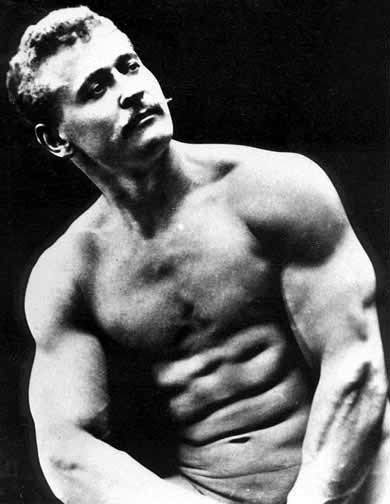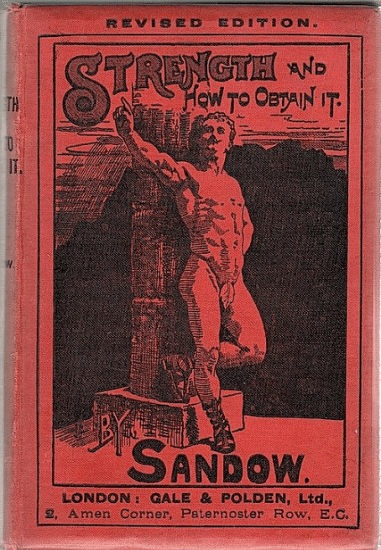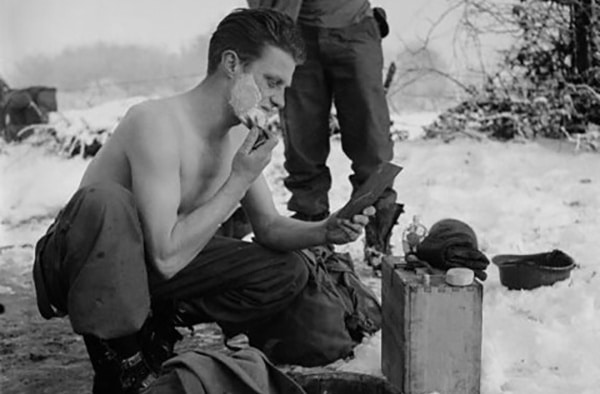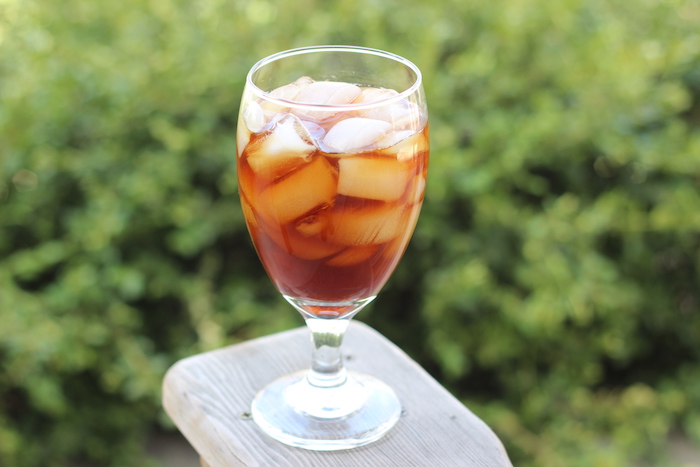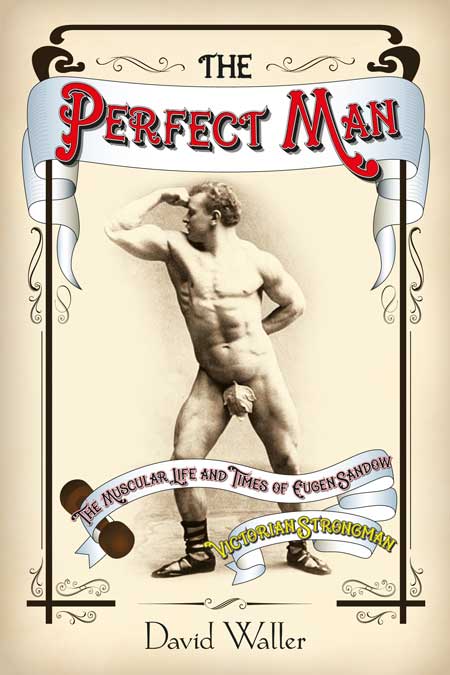Editor’s note: I’ve long been a proponent of the benefits of cold showers, and cold baths are just as good, if not better, as they allow your whole body to be submerged. As another witness to the wisdom of this practice, today I add the endorsement of world famous strongman Eugen Sandow. Under the heading “The Magic Cold Bath” in his health and fitness manual, Strength and How to Obtain It (1897), Sandow recommends taking a frigid dip after each exercise session. While he suggests only staying in a cold bath for a few seconds, I personally try to soak for up to 20 minutes to get the full benefits. If you’ve been hesitant about making the plunge, maybe Sandow’s encouragement will finally get you to do it — as he says, the summer is the best time to start!
I am sometimes accused of being a bit of a faddist about the use of the cold bath, and possibly the heading of this chapter may give strength to that opinion. But its exhilarating and health-giving effects really justify the use of the adjective. The longer I live, and the greater my experience, the more I am convinced of its virtues. Let me advise every pupil after exercising, while the body is still hot, to take a cold bath. It does not matter how much he may be perspiring; the cold bath will prove exceedingly beneficial. He must be careful, however, not to take his bath if he is out of breath. The exercises will, no doubt, quicken the heart’s action; but in from three to five minutes after the series is completed, the heart should be beating normally again. For persons who suffer from weak heart I should not advise a cold bath. As a general rule there is no need to ask the questions, “Is my heart weak?” For if it is weak you should know it beyond a doubt.
In advising cold baths, I speak, of course, for persons in the enjoyment of ordinary health. The bath should be begun in the summer and continued every morning throughout the year. In the winter, if the room is cold, light the gas and close the window. If your hair is not injuriously affected by cold water — and in many cases, I believe, cold water will be found to strengthen it — begin, as you stand over the bath, by splashing the water five and twenty times over your head. In any case, if you are averse to wetting the hair, be careful to begin by sponging the temples and nape of the neck. Next, whilst still standing over the bath, splash the water fifteen times against the chest and ten times against the heart. Then jump into the bath, going right down under the water. In the summer you may remain in the water from ten to fifteen seconds, but in the winter let it be just a jump in and out again.
The subsequent rub down with towels is popularly supposed to produce half the benefits that result from a cold bath. I have no hesitation in saying that this is a great mistake. Let me explain the reason: As you get out of the bath you rub down first one part of the body and then the other, and thus, whilst one part is being warmed by the friction, the other is getting cold. Many people who take cold baths in this way complain of touches of rheumatism, and the whole trouble arises, I believe, from different parts of the body being alternately warmed and chilled.
In order to overcome the risk of this ill-effect my advice is this: Do not spend any time over rubbing yourself down. If you do not like the idea of getting into your clothes wet, just take the water off the body as quickly as you possibly can with a dry towel, jump into your clothes, and let Nature restore your circulation in her own way. You will get quite as warm by this method as by vigorously rubbing down, with the added advantage that the heat of the body will be more evenly distributed. If, owing to poor health or other exceptional causes, the circulation is not fully and promptly restored, walk briskly up and down the room. If you should still feel cold in any part of the body probably the bath is not suited to your constitution, and in that case it is not advised. In ninety-nine cases out of a hundred, however, the cold bath, taken as I have described, will have nothing but the most beneficial effects; and, if taken every morning throughout the year, it is the surest preventive that I know against catching cold. On the other hand, irregularity is liable to produce cold. In short, having once begun the cold bath, make a rule, summer and winter, never to leave it off.
Personally, I find the very best form of the cold bath is to get into your clothes after it without drying the body at all. For the first moment or two the sensation may not be perfectly agreeable, but afterwards you feel better and warmer for adopting this method. The damp is carried away through the clothes and no particle of wet is left.
For pupils who have not the convenience of a bathroom, a cold sponging down may be recommended as a substitute. In this case let two towels be taken and soaked with water. Rub the front of the body down with one, and the back with the other. This method prevents the towel from absorbing the heat from the body, and the cold sponging is thus distributed evenly over its surface. Afterwards dry the body quickly as before, letting no time be lost in getting into your clothes.
I have often been asked whether in the event of exercising at night it is advisable to take a cold bath afterwards. My reply is: “Certainly.” Always have a cold bath or sponge down after exercising. It will make you feel “as fresh as paint,” improve your appetite, and make the skin clean and firm, and be generally conducive to happiness and good health. Some people tell me that a cold bath immediately before retiring keeps them awake; if that be so, I should advise them to exercise earlier in the day. But the exercise and the cold bath ought to be regarded as inseparable.
Be sure to listen to our podcast all about Eugen Sandow:


